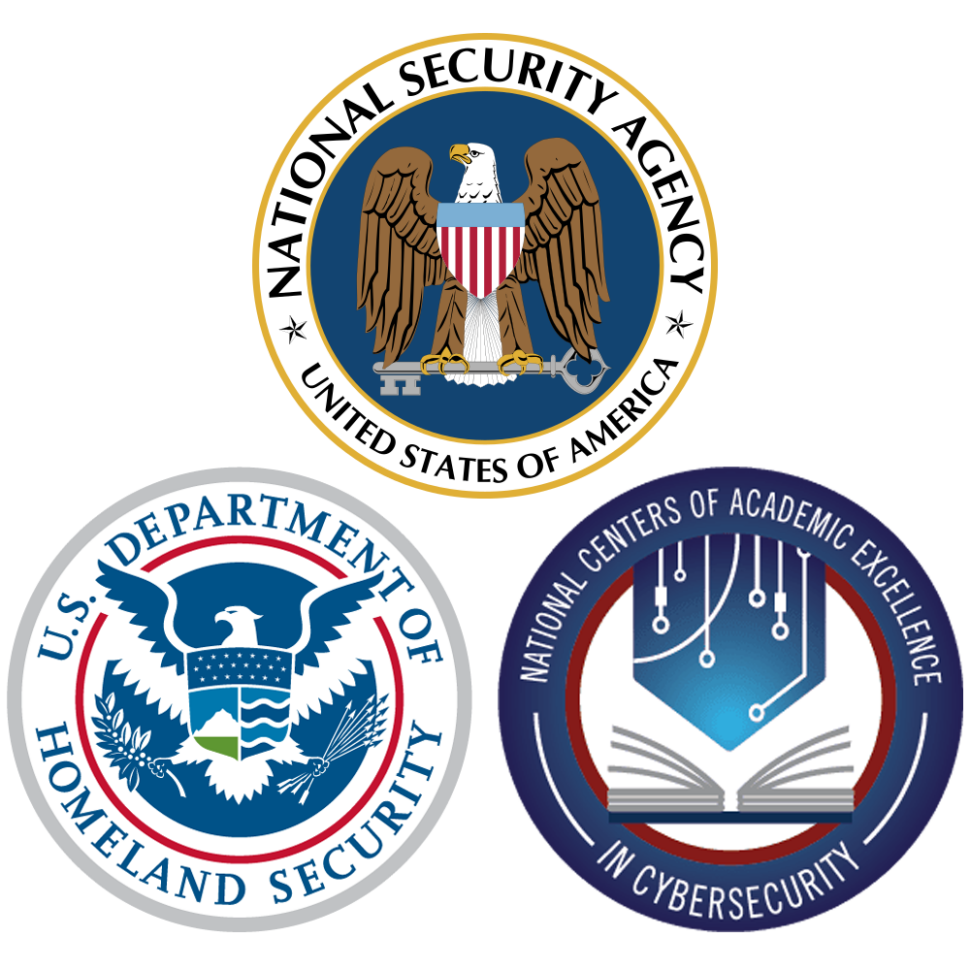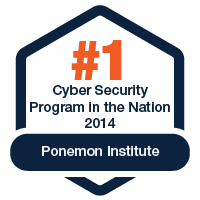
Why Pursue a Joint Master's Degree in Cybersecurity
Students will have a unique opportunity to learn cybersecurity from a global perspective, benefit from a study abroad opportunity and earn two degrees from world-renowned programs. They will develop specialized expertise in cyber security including how to protect data, gather and examine digital evidence, perform security risk assessments, develop secure software and protect computer networks. Through this rigorous, applied curriculum, students will acquire technical and business knowledge to assess, manage and become a leader in the cybersecurity industry. Students will begin the program at their home university, then travel to the partner institution to complete their coursework.
Program Details for UT San Antonio and Tec de Monterrey Students
Students from UT San Antonio will enroll in the MS Information Technology Cyber Security Concentration program and successfully complete six courses as part of the program’s core requirements. Their remaining five courses will be completed at Tec de Monterrey. For coursework at Tec de Monterrey, students must begin their coursework in the fall and can choose to study in Monterrey, Mexico City or Guadalajara. The language of instruction at Tec de Monterrey will be Spanish. Additional information about the ITESM component for this dual program is available here.
Students from Tec de Monterrey will enroll in the ITESM Master in Cybersecurity program and successfully complete their core requirements. They will then take six courses at UT San Antonio, beginning in the fall or spring semesters. The language of instruction at UT San Antonio will be English.

National Endorsements
UT San Antonio has been designated as a Center for Academic Excellence (CAE) by the National Security Agency and the Department of Homeland Security in the areas of CAE-Education, CAE-Operations and CAE-Research and is one of only 10 institutions in the nation to achieve all three designations.

STEM Designated Degree Program
This program in the Carlos Alvarez College of Business is included on the U.S. Department of Homeland Security’s STEM Designated Degree Program list.
STEM Designated Degree Programs provide several benefits, including:
- High career growth potential and competitive salaries
- Development of transferrable skills such as adaptability, critical thinking, research and analysis
- International students on an F-1 visa are eligible for up to 24 months of Optional Practical Training (OPT)
Admission & Application Requirements
Applications are submitted through the UT San Antonio Graduate Application. Please upload all required documents (listed below) on your UT San Antonio Graduate Application. It is the applicant’s responsibility to ensure completion and submission of the application, a nonrefundable application fee, and all required supporting documents are on file with UT San Antonio by the appropriate application deadline.
Students who wish to obtain this dual degree must apply and be admitted to Tec de Monterrey in addition to UT San Antonio. Start your application for Tec de Monterrey here: https://maestriasydiplomados.tec.mx/admisiones.| Information Technology (MS) / Cybersecurity Master’s Dual Program | ||
|---|---|---|
| Required Degree | Bachelor's Degree from an accredited college or university in the United States or have proof of equivalent training at a foreign institution. | |
| Minimum GPA | 3.0 (on a 4.0 scale) Departments may consider GPA of last 60 semester credit hours. Otherwise qualified individuals with a GPA below 3.0 may still be eligible for admission consideration. For further information, please contact [email protected]. | |
| Coursework | Completed adequate credit hours or foreign institution equivalent coursework as preparation for the program. | |
| Transcripts* | Required from all institutions attended; international transcripts must be recorded/translated to English | |
| Credential Evaluation | Required if you have earned university-level credit from foreign institutions. Submit an evaluation of your transcripts from FCSA or any NACES-approved credential evaluation agency. | |
| English Language Proficiency | 79 TOEFL iBT / 6.5 IELTS / Duolingo 100 For exams taken on or after January 21, 2026: We require a minimum TOEFL iBT score of 4.0. |
|
| Purpose Statement | Required | |
| *Unofficial transcripts will be taken into consideration for admissions; however, if admitted into the program, you must submit official transcripts to the University. | ||
Application Deadlines
Applicants are encouraged to have their admission file completed as early as possible. All applications, required documents and letters of recommendation, if applicable, must be submitted by 5:00 PM U.S. Central Time on the day of the deadline. Deadlines are subject to change.
| Information Technology (MS) / Cybersecurity Master’s Dual Program | |||
|---|---|---|---|
| Timing on Admission Decision: Completed applications will be reviewed for admission on a rolling basis. Decisions generally will be made and sent to applicants within 4 to 6 weeks of receiving the application. | |||
| Application Deadlines for: | Priority | International | Domestic |
| Spring 2026 | November 1 | December 1 | |
| Summer 2026 | March 1 | May 1 | |
| Fall 2026 | June 1 | August 1 | |
| Spring 2027 | November 1 | December 1 | |
| Summer 2027 | March 1 | May 1 | |
Career Options
UT San Antonio prepares you for future careers that are in demand. The possible careers below are based on data pulled by a third-party tool called Emsi, which pulls information from sources like the U.S. Bureau of Labor Statistics, U.S. Census Bureau, online job postings, other government databases and more to give you regional and national career outlook related to this academic program.
Earn a Master of Science in Information Technology while developing expertise in cyber security. The MSIT Cyber Security concentration is designed to provide information technology professionals with the essential technical and business skills necessary to become a well-versed cyber professional.
Learn how to protect data, gather and examine digital evidence, perform security risk assessments, develop secure software and protect computer networks. As part of this 33-credit-hour degree program in the Carlos Alvarez College of Business, you will develop specialized expertise in the area of cyber security.
Professional Development
Obtain the skills necessary to secure internships or full-time employment and excel in your professional career through self-development resources and workshops, including:
• Job search tips and tools
• Leadership skills and development
• Professional branding
• Resume development and customization
• Interviewing
• Offer negotiation
• On-demand virtual resources (JobScan and VMock)
Engagement Opportunities
Business-oriented activities outside the classroom are another great opportunity to develop skills and abilities frequently sought by employers. While at UT San Antonio, you have the ability to:
- Engage in our research-focused learning pathway or participate in projects that focus on applying research in a business context.
- Expand your global mindset by participating in an immersion or study abroad program.
- Gain valuable leadership and teamwork experience by participating in a student organization, attending a business leadership conference or signing up for a case competition team.
- Accenture
- Amazon
- Apple
- Arctic Wolf
- AT&T
- Baptist Health System
- Boeing
- Booz Allen Hamilton
- Blackstone Discovery
- Chevron
- Crowdstrike
- Cyber Range Solutions
- Dell Technologies
- Ernst & Young (EY)
- Exxon Mobil
- Frost Bank
- FBI
- Frost Bank
- H-E-B
- Microsoft Corporation
- Mitre
- National Security Agency
- Rackspace
- Raytheon
- SWBC
- Target
- The Home Depot
- Under Armour
- U.S. Air Force
- USAA
- Valero Energy Corporation
- Quality Development Course
- Cybersecurity Frameworks Outline
- Functional Cybersecurity Structure in Organizations
- Cybersecurity Operations
- Data Protection Management
- Innovation in Cybersecurity Technology
- Innovation and Leadership in Cybersecurity Management
- Digital Forensic
- Cybersecurity Incident Identification and Research
- Cyberthreat Management
- Cybersecurity Intelligence
- Cybersecurity Asset Configuration and Vulnerability Management
- Development and Report of Cybersecurity Metrics
- Cyberspace Attacks
- Incident Response
- Cybersecurity Project



